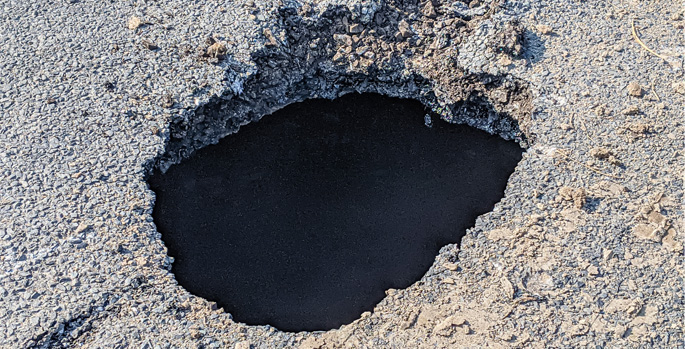Britain has been hit with a slew of sinkholes appearing across major cities in England, Wales and Scotland.
Sinkholes have cropped up in Brighton, South London, Surrey, Swansea, Glasgow and the Scottish Highlands this year, causing the closures of major roads, school streets and even a historic tourist attraction.
The recent explosion of a water pipe near Clapham Common caused the partial closure of Clapham Park Road. After attending the scene alongside emergency services, Thames Water issued a statement apologising for the damage but adding that, due to the size of the job, it was going to be a ‘difficult repair’.
Similar issues hit both Swansea and Brighton. A sinkhole, which was reported on 13 July, caused the closure of one lane of Oystermouth Road outside Swansea prison, with another sinkhole appearing in Brighton on 14 July outside a primary school, causing the closure of Middle Street in the city centre.
Scotland has not been spared from the destruction either; a sinkhole appeared behind the sea wall of the historic Fort George in the Highlands, threatening the integrity of the structure and leaving it at risk of collapse.
A spokesperson for Historic Environment Scotland (HES) said: 'In line with other parts of Scotland, coastal erosion and lowering of beach levels is affecting the Moray Firth. This previously caused localised scouring (the erosion of soil) in the vicinity of the Place of Arms at Fort George, commonly known as the Dog Cemetery.
'Since then, we have been made aware of a further area of localised scouring at the North Glacis sea wall. This area has been fenced off and we are in discussions with the Ministry of Defence regarding remedial works.'
This latest wave comes shortly after a previous sinkhole on St Vincent Street, Glasgow, was reported on 30 May.
Scottish Water informed Highways that it closed a section of the road outside the Scottish Power building to carry out repairs on the sewer network and an adjacent water main, both of which led to the sinkhole forming.
It was able to fully reopen the road to traffic on 2 July, over a month after the damage was reported.
And earlier in the year, in February, a 20 metre-wide sinkhole on the A25 in Surrey was declared a major incident by agencies in the county.
Thames Water, Historic Environment Scotland, Brighton City Council, and Swansea City Council have been approached for comment.
Image credit: Shutterstock @Stephen Barnes






